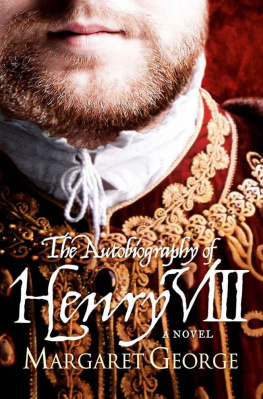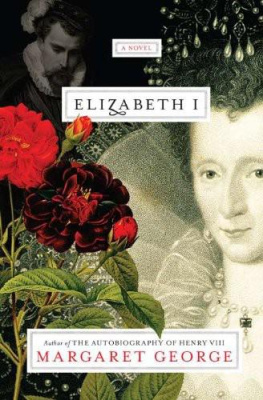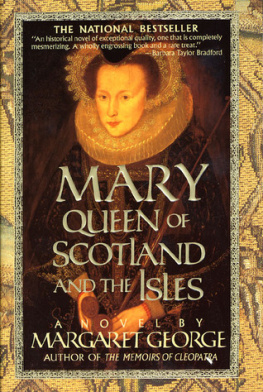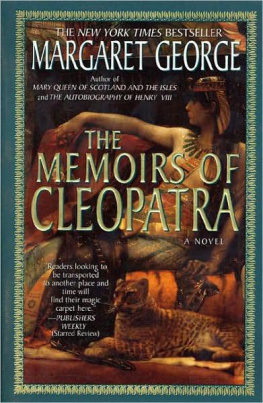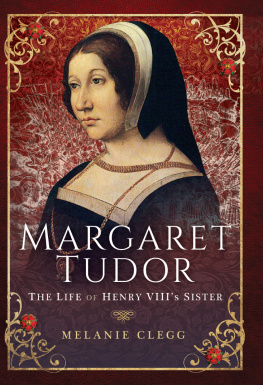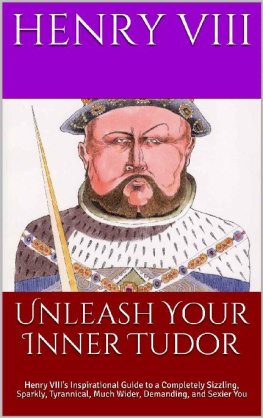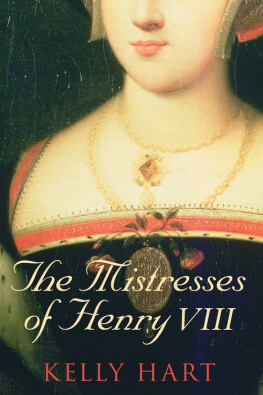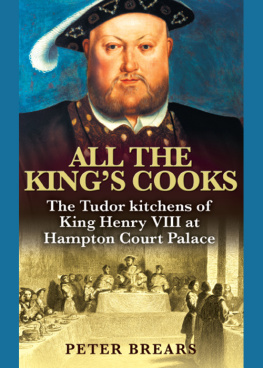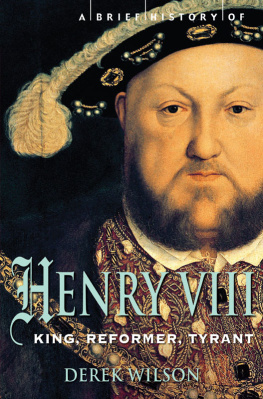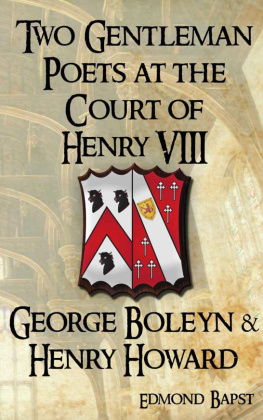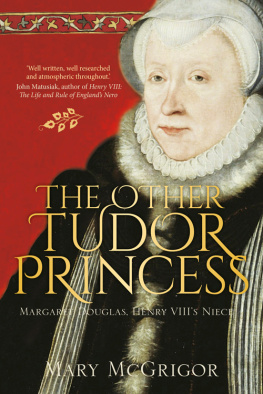Margaret George - The Autobiography of Henry VIII
Here you can read online Margaret George - The Autobiography of Henry VIII full text of the book (entire story) in english for free. Download pdf and epub, get meaning, cover and reviews about this ebook. year: 1986, publisher: St. Martins Griffin, genre: Non-fiction / History. Description of the work, (preface) as well as reviews are available. Best literature library LitArk.com created for fans of good reading and offers a wide selection of genres:
Romance novel
Science fiction
Adventure
Detective
Science
History
Home and family
Prose
Art
Politics
Computer
Non-fiction
Religion
Business
Children
Humor
Choose a favorite category and find really read worthwhile books. Enjoy immersion in the world of imagination, feel the emotions of the characters or learn something new for yourself, make an fascinating discovery.
- Book:The Autobiography of Henry VIII
- Author:
- Publisher:St. Martins Griffin
- Genre:
- Year:1986
- Rating:4 / 5
- Favourites:Add to favourites
- Your mark:
- 80
- 1
- 2
- 3
- 4
- 5
The Autobiography of Henry VIII: summary, description and annotation
We offer to read an annotation, description, summary or preface (depends on what the author of the book "The Autobiography of Henry VIII" wrote himself). If you haven't found the necessary information about the book — write in the comments, we will try to find it.
The Autobiography of Henry VIII — read online for free the complete book (whole text) full work
Below is the text of the book, divided by pages. System saving the place of the last page read, allows you to conveniently read the book "The Autobiography of Henry VIII" online for free, without having to search again every time where you left off. Put a bookmark, and you can go to the page where you finished reading at any time.
Font size:
Interval:
Bookmark:

For
Alison
and
Paul


 William Somers to Catherine Carey Knollys:
William Somers to Catherine Carey Knollys:
Kent, England. April 10, 1557.
My dear Catherine:
I am dying. Or, rather, about to diethere is a slight (though unconsoling) difference. It is this: the dying can no longer write letters, whereas those about to die can and sometimes do. As this letter proves. Dear Catherine, spare me your protestations to the contrary. You have not seen me in many years (how many since you went into exile to Basle?); you would not recognize me now. I am not sure I recognize myself, whenever I am so ill-advised as to actually look at myself in a mirrorproving that vanity lives at least as long as we do. It is the first faculty to come and the last to go. And I, I who have made my livelihood at court mocking others vanityI look in the mirror, like all the rest. And see a strange old man who looks decidedly unsavoury.
But I was already twenty-five when old King Harry (who was young then, himself) took me into his household. And he has been dead ten years now, and that is what I am writing about. Let us come directly to business. You know I have never been sentimental. (I think Harry liked that best in me, being so incorrigibly sentimental himself.) I have a small legacy for you. It is from your father. I knew him rather well, even better than you yourself did. He was a magnificent man, and sorely missed today, even by his enemies, so I should think.
I live quietly in the country, in Kent. It is far enough from London to afford one some protection from false accusations, but not so far that one cannot hear the false accusations against others. There have been more burnings at Smithfield; and as you have most likely heard yourself, Cranmer and Ridley and Latimer were roasted. How Mary must have hated Cranmer, all those years! Think of the times when she had to stand near him in some religious ceremony or other... such as Edwards christening, where they actually had her bearing gifts! Dear CranmerHenrys compliant churchman. If ever there were anyone who seemed an unlikely candidate for martyrdom, it was he. I always assumed the man had no conscience at all. I see I was wrong. Did you hear that first he recanted his Protestantism, in a typically Cranmerian fashion, and thenoh, marvellous!recanted his recantation? It would have been humourous were it not so deadly.
But then, you and those of your... persuasion... sensed that early, and had the prudence to clear out of England. I will ask you a question, knowing full well you will not answer it, not on paper if you hope ever to return here. Just how Protestant are you? You know the old King never saw himself as a Protestant at all, but merely as a Catholic who fell out with the Pope and refused to recognize him. A neat trick, but then Harry had some odd turns of mind. Then his son Edward, that pious little prig, was Protestant. But not the wild sort, the Anabaptist variety. Are you that sort? If you are, there will be no place for you in England. Not even Elizabeth will welcome you, should she ever become Queen. You should know that, and not pin your hopes on things that are unlikely to be. Some day you can return home. But not if you are Anabaptist or the like.
England will never again be Catholic. Queen Mary has seen to that, with her persecutions for the True Faith and her Spanish obsession. Harry never punished anyone for anything save disloyalty to the King. As long as you signed the Oath of Succession you could believe what you liked, provided you were gentlemanly about it and did not run about in a sweating fervour, one way or the other. Thomas More wasnt beheaded for being a Catholic (although the Catholics would like people to think that and have nearly succeeded), but for refusing to take the Oath. The rest of his household took it. But More did long for martyrdom and went to... heroic?... lengths to achieve it. He literally forced the King to kill him. And got that so-called heavenly crown he lusted after as old Harry had lusted after Anne Boleyn. Harry found the object of his lust not as palatable as he had imagined; let us hope More was not similarly disillusioned once he attained his desire.
I forget. I must not make such jests with you. You believe in that Place too. Believers are all alike. They seekwhat was Mores book title? Utopia. It means No Place, you know.
As I said, I live quietly here in my sisters household in Kent, along with my niece and her husband. They have a small cottage, and Edward is... I hesitate to write it... a gravedigger and tombstone carver. He makes a good living at it. (Just such puns used to be my living.) But he tends his garden as others do (we had wonderful roses last year), plays with his children, enjoys his meals. There is nothing the least death-like about him; perhaps only that sort can stomach such a profession. Although I think being a jester is equally bound up with death. Or providing a scent to cover it, anyway.
I came here before Edward had his coronation. The boy-King and his pious advisers had no need of a jester, and I would have stood about like a loose sail luffing in the wind. Neither is Queen Marys court the sort of place where one makes jokes.
Do you remember, Catherine, that summer when you and I and all your Boleyn family and the King gathered at Hever? You and your brother Henry were brought to see your Boleyn grandparents. Hever is delightful in the summer. It was always so green, so cool. And the gardens had truly the best musk-roses in England. (Do you perchance remember the name of your grandparents gardener? I am not far from Hever now, and perhaps could consult with him... assuming he is still living.) And it was an easy days ride from London. Do you remember how the King used to stand on that hill, the first one from which you could glimpse Hever, and blow his hunting horn? You used to wait for that sound, and then go running to meet him. He always brought you something, too. You were the first Boleyn grandchild.
Remember your uncle George that summer? He was trying so hard to be the gentil parfit knight. He practised riding about in his armour, ran lists against trees, and fell in love with that sloppy girl at The White Hart. She gave her favours to every man who frequented the tavern, except George, I think. She knew that to do so would stop the flow of sonnets he wrote exalting her purity and beauty, and she enjoyed laughing at them.
Your mother Mary and her husband were also there, of course. I always thought your mother more than her sister Annes equal in beauty. But of a different sort. She was sun and honey; the other was the dark of the moon. We were all there that summer before everything changed so horribly. The tide has indeed gone out, leaving that little time as a brave clump of ground projecting above the muddy, flat rest of it.
I am rambling. No, worse, I grow romantic and sentimental, something I abhor in others and will not tolerate in myself. Now, to return to the important thing: the legacy. Tell me how I may get it safely into your hands across the Channel. It is, unfortunately, a rather awkward size: too large to be successfully concealed on a person, too small to be its own protection against destruction. In fact, it can all too easily be destroyed by any number of thingssea, fire, air, or even neglect.
Next pageFont size:
Interval:
Bookmark:
Similar books «The Autobiography of Henry VIII»
Look at similar books to The Autobiography of Henry VIII. We have selected literature similar in name and meaning in the hope of providing readers with more options to find new, interesting, not yet read works.
Discussion, reviews of the book The Autobiography of Henry VIII and just readers' own opinions. Leave your comments, write what you think about the work, its meaning or the main characters. Specify what exactly you liked and what you didn't like, and why you think so.

